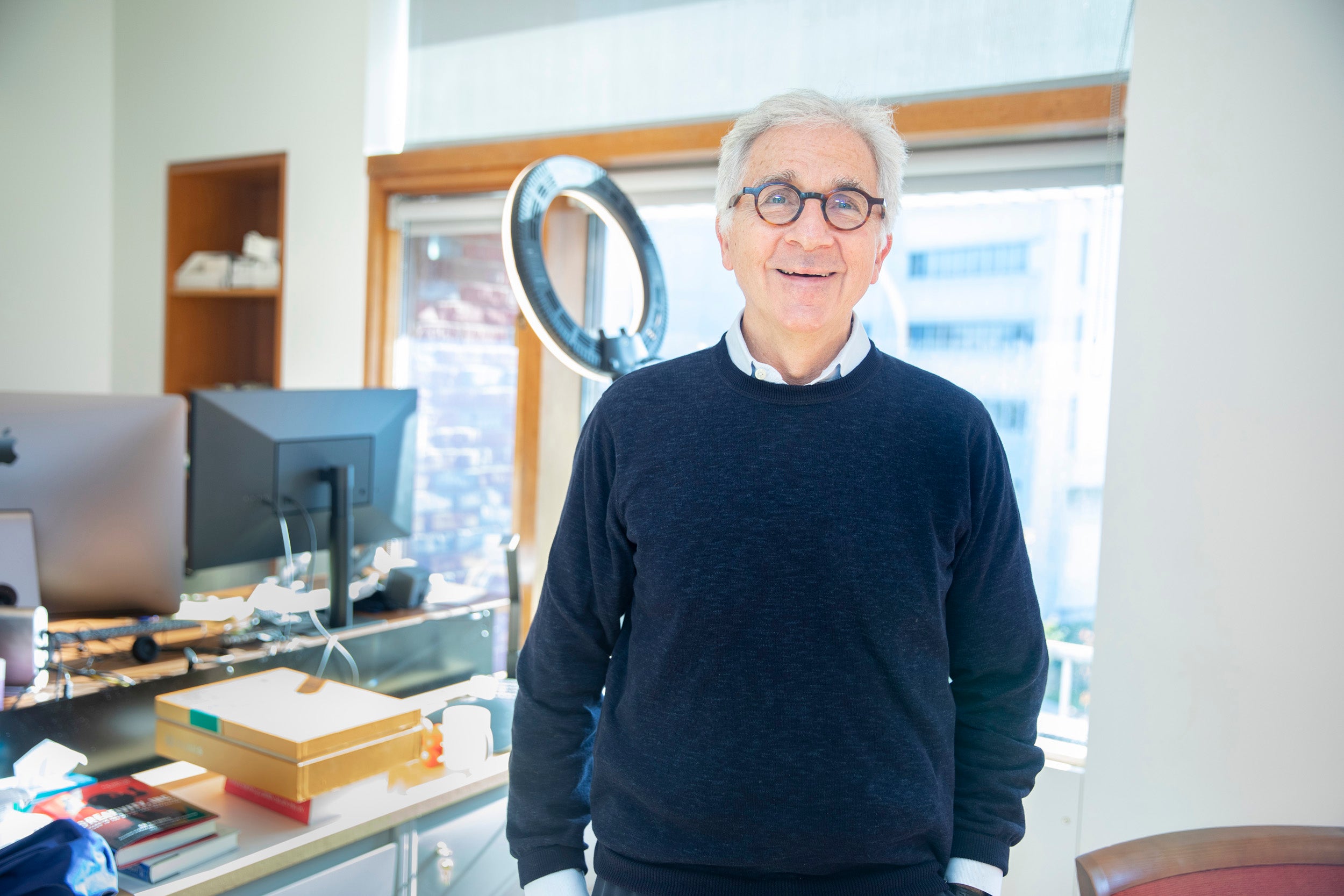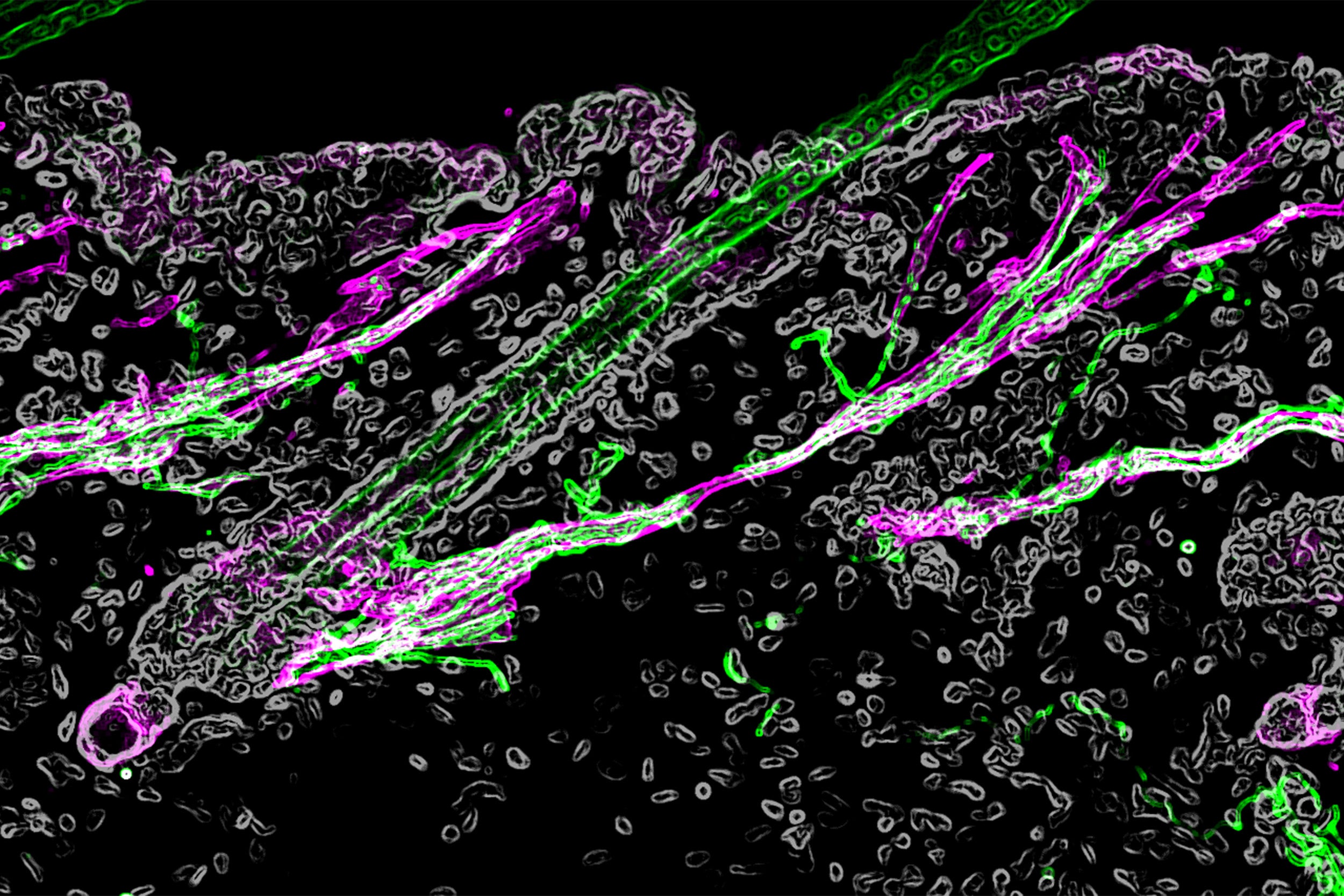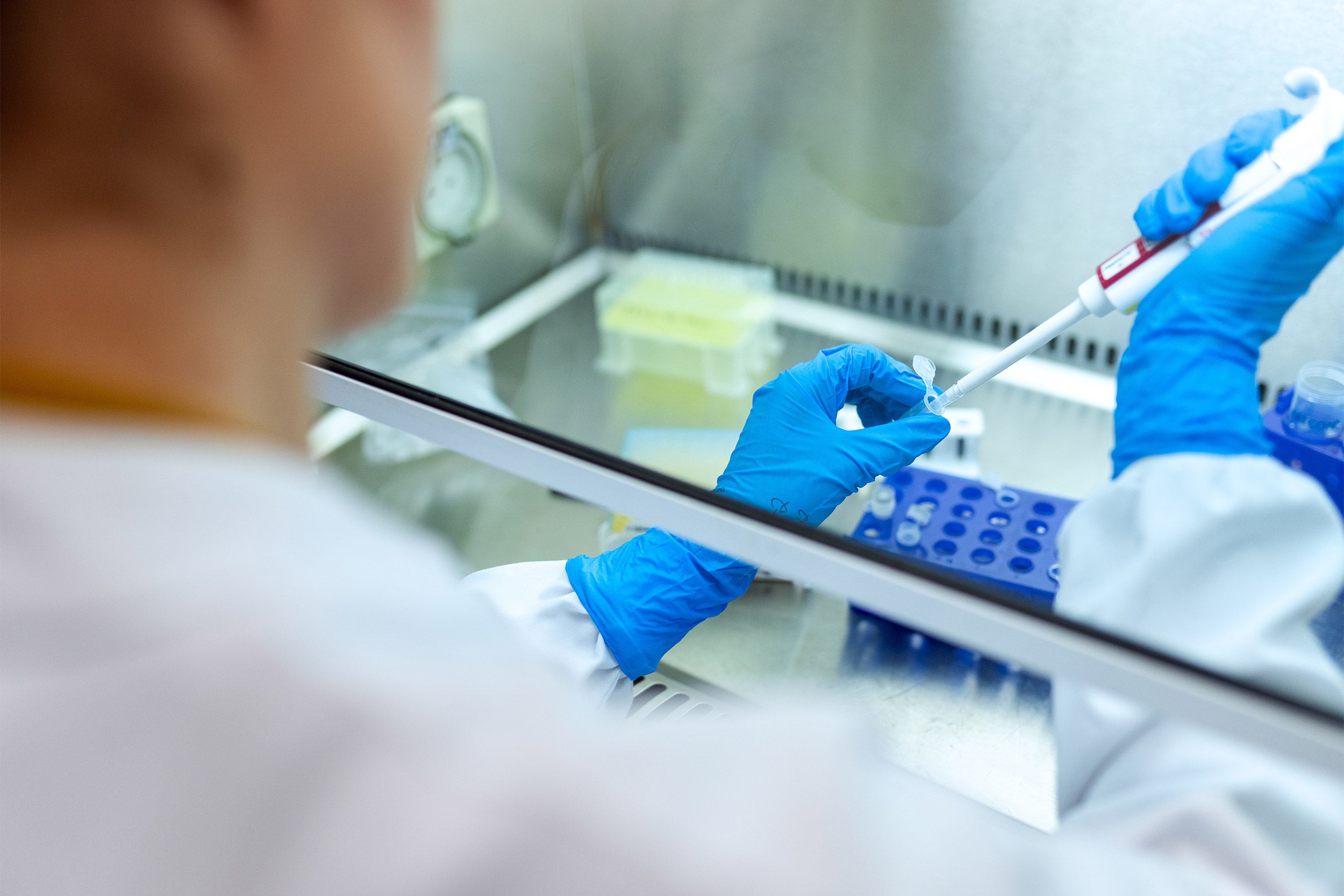New findings suggest how stress may trigger gray hair
Harvard scientists have found evidence to support long-standing anecdotes that stress turns hair gray.
Jan. 22, 2020 • ~8 min
Major study on Duchenne muscular dystrophy gains support
Harvard stem-cell research receives support from Sarepta Therapeutics for work on Duchenne muscular dystrophy.
Jan. 9, 2020 • ~6 min
Researchers unveil stem cell models of human spine development
Harvard researchers have unveiled the first stem cell models of human spine development, setting the stage for better understanding of musculoskeletal and metabolic disorders, including congenital scoliosis, muscular dystrophy, and Type 2 diabetes.
Jan. 8, 2020 • ~6 min
New technique being developed to therapeutically repair and replace human organs
A new technique called SWIFT (sacrificial writing into functional tissue) ultimately may be used therapeutically to repair and replace human organs with lab-grown versions containing patients’ own cells.
Sept. 6, 2019 • ~7 min
New ATAC-seq method from Harvard accelerates single-cell research
Harvard researchers have devised a time-saving method that makes it possible to speed up the process of profiling gene regulation in tens of thousands of individual human cells in a single day, a development that promises to boost genomics research.
June 27, 2019 • ~6 min
New method improves transplant safety in mice
The combination of the antibody CD117 and the drug saporin selectively targets blood stem cells, making transplantation safer by limiting collateral damage caused by the current standard of treatment, chemotherapy, and radiation.
Feb. 7, 2019 • ~6 min
Epidemic of autoimmune diseases pushes researchers in new direction
Scientists at the Harvard Stem Cell Institute are seeking ways to protect newly transplanted cells from autoimmune attack.
Jan. 31, 2019 • ~7 min
/
2



